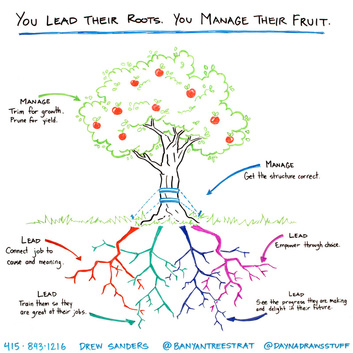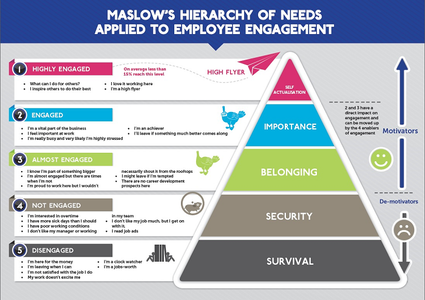|
"Branches & Roots": A Look at Strategy and Competition Through the Lens of Business and Sport A Banyan Tree Strategies Communication Does Your Disadvantage Have an Advantage? Dr. Seuss Thinks so…Eggs Anyone?? Welcome to the final 45 days of the first half of 2016, a time of great expectation. Business deals need to close before summer starts, and the long days and warm evenings of June and July creep into even the most focused mind. Thoughtful leaders are aware of this dynamic, and are wise to let the thoughts simmer without boiling over. You can just hear the manager thinking, “Yes, let’s dream a bit, but also finish our work as well, that customer would like to have our product before they go on their own vacation." Into this short season we offer thoughts on how you can stay adaptable in the face of a new constraint, consider a fresh way to view the difference between power and influence, and what a flywheel can teach us about our network. We close with an entertaining video on how to best use Skype for a job interview. Eggs Anyone? What does Dr. Seuss have to do with your ability to use a constraint to improve your performance? Well, it turns out most of us only have so much resolve to repeat a task over and over, and there is a point of diminishing returns with the "rinse, repeat" strategy of human learning. This is where the concept of adding a constraint to your practice enters our field of view. Most of us have acquired some level of skill in order to meet our consumption needs, and if we are really fortunate we enjoy the tasks we are paid to perform. Yet the forces of creative destruction are high, and it pays to keep improving and adapting (anyone reading this on a blackberry??) A recent study showed that when participants were given a constraint to their practice, their output increased over the average. A living example of this is the book “Green Eggs and Ham,” which was written when Theodore Geisel was given the constraint of writing a children’s book with no more than 50 words. A frequent way to think about this concept is in daily life, the moment something changes to the negative see if you can ask yourself, what is the advantage in my apparent disadvantage? Does this new constraint open up an opportunity to enhance my performance? Connecting this back to you and your team's production, how might you change up the practice and or rhythms of the group with a fresh constraint? How might thinking about changes this way improve both the resiliency and the adaptability of your team? Consider asking a few folks to diversify your data set and then let us know what you come up with. Power vs. Influence Several years ago our work led us to draw the Tree of Performance above as a way to illustrate the difference between extrinsic and intrinsic motivation for a group of managers who were struggling to hit their goals. The idea of the image is to give the person in charge an idea of how many more levers they have to work with inside an individual, as opposed to the obvious "carrot and stick" behavioral outcome options. Recently, we began to return to this image as a way to suggest to business owners and executives that when it comes to power and influence the same could be true. Power typically only extends to the end of where the holder has the ability to monitor and therefore control outcomes (think US Military in a foreign country like Korea.) Influence, however, moves freely around and under borders, and trades on a completely different exchange: that of human emotion. It is our “ism” that flies around the world confounding leaders, and this greatly adds to our influence. Capitalism speaks to the roots of a persons need for self-improvement as they climb Maslow's ladder. In your own life as a leader you probably toggle back and forth between using your power and your influence without much notice. Our leadership engagements have left us considering the consequences that come from using power versus influence and we have noticed that the latter far outpaces the former but can require more time and energy. When time is short, it helps to have practiced your verbal communication in tapping into your teams roots, or you will most likely go back to the old faithful “my way or the highway” levers. What have you noticed in this area? Your Personal Flywheel If your network is the sum of all your shared experiences, and your production is the outcome of your efforts, than we would like you to consider that your personal flywheel is the combined influence of all of your connections. The great thing about having a network of people you have shared life experiences with is that they are a primary source on you and your character. Another benefit is that your network also cares deeply about their own success, and they are actively growing their own careers. As the calendar year turns towards the summer months, consider allocating some of that lost time of production to feeding your relationships with genuine inquiries regarding well-being and current plans. We wrote a white paper on this topic so if it feels awkward, you can follow our script. The interaction with your network will keep your activity and acuity levels at game-ready speed at a time of year when things can slow down. The norms of reciprocity will also be in your favor, as you seek to understand what’s new with them, they will return the inquiry. Give it a shot and let us know how it goes. Video Interviewing Video conferencing has been around for at least a decade, and for many it is received with a mixed bag of emotions. Do I really need to see you while we are talking? Do I stare at the screen or the camera? Can we please change the camera angle as I am distracted by seeing how awful I look? These and other questions pop into people’s heads as reasons not to like video conferencing. Yet the technology is not going away, and a company by the name of SKYPE has become a global standard for communication, and therefore it pays to understand how to use it effectively. With that in mind we share a very entertaining and short video on how to interview well on SKYPE. You may want to forward it on to a friend who is graduating from college, or watch it yourself for some helpful tips in video conferencing etiquette. We close with the reminder, when change happens, what is your new advantage?
0 Comments
|
Archives
November 2023
Categories
All
Complete Annual Newsletter Volumes
|





